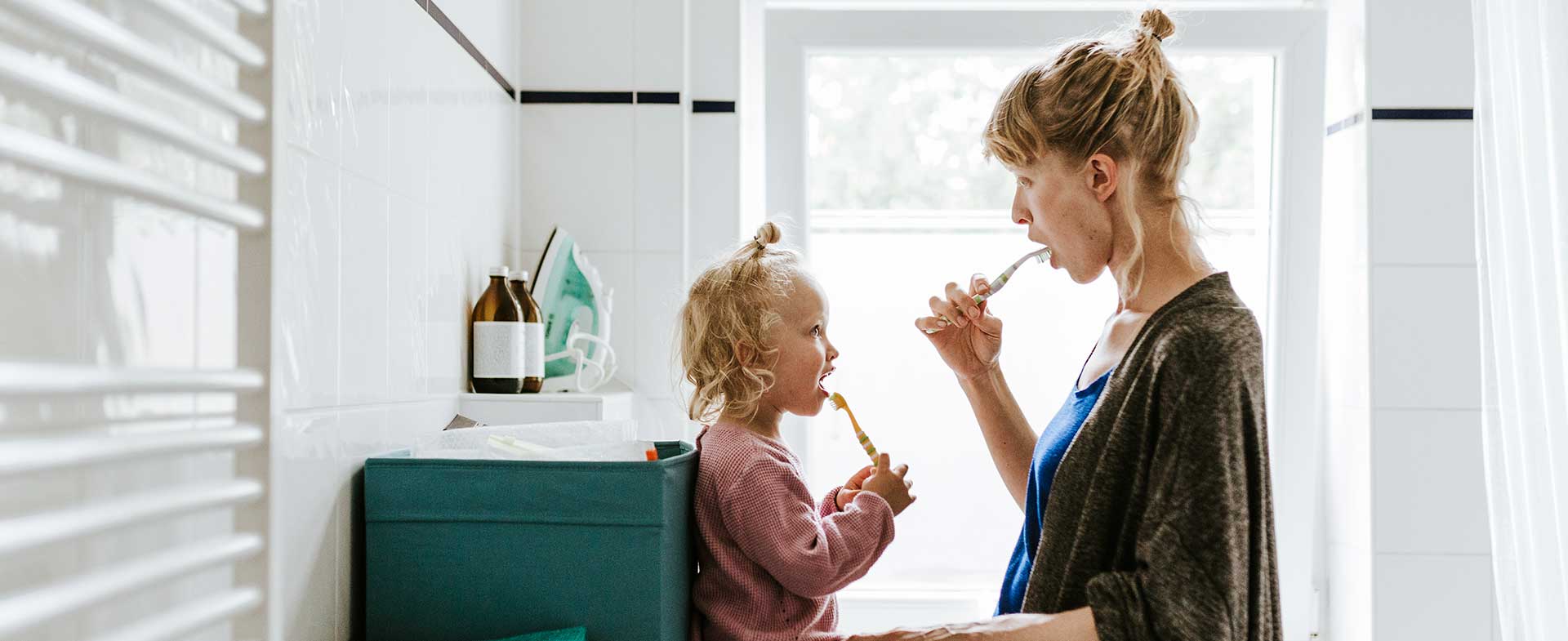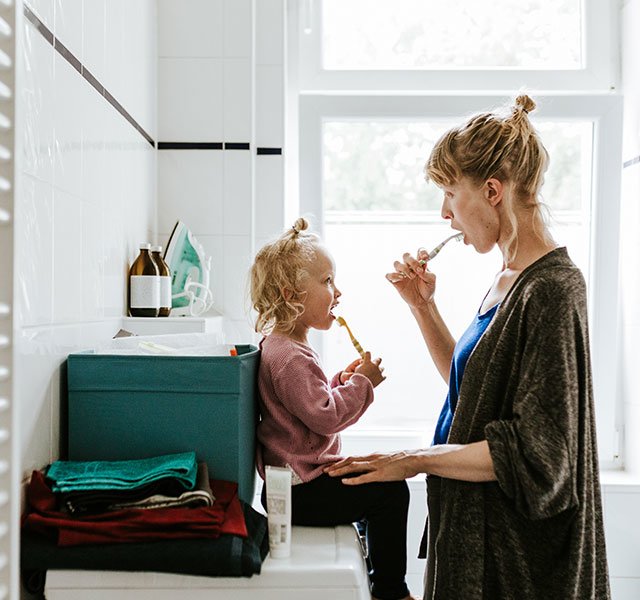As parents and guardians, we do a lot for our kids – the lunch packing, the laundry folding, the homework help, the bedtime stories – all while trying to teach them how to be good, self-sufficient people one day. Personal hygiene is just one lesson of many that becomes important as your child gets older, especially as they near puberty.
Why is personal hygiene so important? Personal hygiene is at the root of our overall heath. By taking care of your body in small ways every day, you can prevent many health conditions that are related to poor hygiene including:
- Dry, itchy skin or rashes
- Tooth decay
- Bacterial or fungal infections
- Viruses
6 Ways To Encourage Good Hygiene Habits In Kids
Here are some recommendations for teaching your child about personal hygiene:
- Start them young. You don’t have to wait. Start by teaching them about the importance of hygiene and grooming – bathing themselves, brushing their teeth, washing hands, using the bathroom independently, etc. when they are toddlers. By ages 3-5, let your child try to do these tasks by themselves with you present. That way, you can encourage them when they are doing well, or show them what they can do better. By ages 6-9, try to push your child to get through their daily hygiene routine on their own and eventually without being asked to do it.
- Be a good role model. One of the best ways to teach new habits is to keep up with your own personal hygiene and be open about it. If your child sees the grownups in their life slacking off on showering or forgetting to brush teeth, they may think this behavior is acceptable. By setting the standard, your little ones are more likely to catch on.
- Keep the conversation going. Personal hygiene is a topic that should be revisited a lot as your child continues to grow. Once they master brushing their teeth by themselves, move on to the importance of flossing. As children near puberty (as early as 8-10 for girls and about 10-12 for boys), these conversations should come up again. Keep lines of communication open so your child feels comfortable talking to you about new body hair, odor or other changes they (or you) start to notice. Normalize the changes that puberty brings and embrace them as a positive part of growing up.
- Establish personal hygiene as an everyday responsibility. Talk to your children about why personal hygiene is important. What happens if you don’t brush your teeth or don’t change your clothes when they are dirty? It might help to create charts that allow your child to check off a task each time they complete one. This will give them a sense of independence and help them learn to be responsible for themselves.
- Check in frequently. Once your child is able to manage most of their personal care unassisted, that’s great! But regardless of your child’s maturity level, make sure to check in here and there to monitor those good habits and make sure they are keeping up with it. Is your child washing their hands every time they use the bathroom? Are they cleaning private parts correctly in the shower? They may roll their eyes, but the reminders help.
- Promote personal hygiene as a form of wellness. Personal hygiene isn’t just about physical health. It is about caring for your general wellness and learning to love yourself through the means of keeping your body happy and healthy. Teaching your children the importance of self-love and self-care at a young age will help them feel more comfortable with themselves as they get older.
What To Do When Your Child Pushes Back On Personal Hygiene
Sometimes children get sensitive and push back on the idea of having to start wearing deodorant or brushing their own teeth at night. Sometimes they just resist because they’d rather be playing or don’t like being told what to do.
If you’re out of ideas on how encourage your child to prioritize their personal hygiene, there are some different approaches that might work for you.
- Talk about consequences. Help them to understand why this new routine is necessary. If you don’t wash your hands, you are spreading bathroom germs around and you or others could get sick. If you don’t brush your teeth, you may get cavities or cause tooth decay and bad breath.
- Provide an incentive. For young kids, consider handing out a small, non-food treat (like a sticker) once your child has checked off one of their personal hygiene tasks. A word of warning: Don’t revert to begging your child to do something routine in exchange for a treat. This can create power struggles that can become more of an issue as they get older.
- Introduce educational resources. Sometimes children learn better in different ways. There are many books and videos out there that can help you teach your child about personal hygiene. Maybe there is a fun video your child can turn on while they brush their teeth. For older kids going through puberty, “The Body Book for Boys” or “The Caring and Keeping of You” for girls are great resources.
Remember, teaching your child the importance of personal hygiene is an important part of their upbringing. As a parent, if you have questions about when it is appropriate to introduce these new responsibilities, talk to your child’s pediatrician.
To find a doctor at Henry Ford, visit henryford.com or call 1-800-436-7936.
Dr. Stacy Leatherwood Cannon is a board-certified pediatrician and the physician champion for childhood wellness for Henry Ford LiveWell. She sees patients at Henry Ford Medical Centers in midtown Detroit and Sterling Heights. Learn more about Dr. Leatherwood Cannon.



